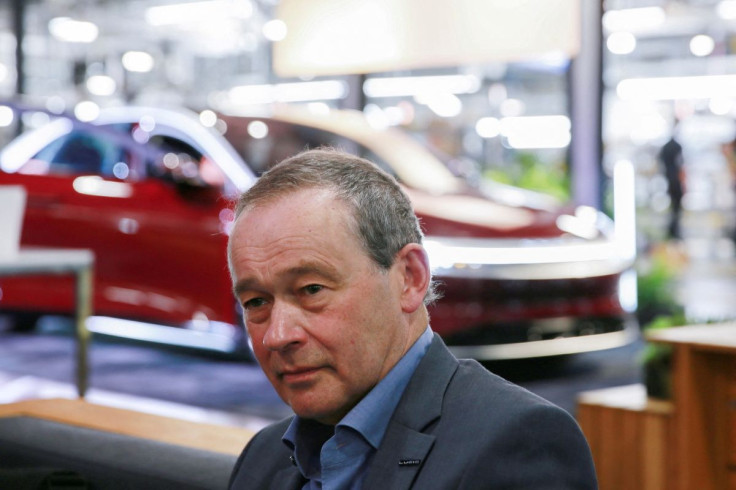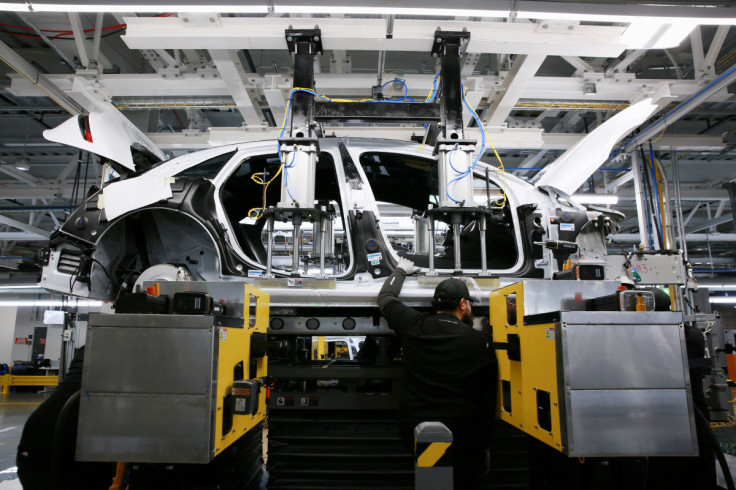Lucid Layoffs: 1,300 To Lose Jobs As EV Demand Wanes

KEY POINTS
- Lucid CEO Peter Rawlinson said the layoffs will affect "nearly every organization and level"
- Affected Lucid workers will receive severance packages, including healthcare coverage
- Lucid's Q4 2022 revenue missed Wall Street estimates
Electric vehicle manufacturer Lucid announced that it plans to reduce its workforce in a restructuring move to cut costs as it continues to navigate the waning EV market.
In a regulatory filing Tuesday, Lucid said it will lay off about 1,300 workers, or about 18% of its workforce. The move would incur one-time charges of between $24 million and $30 million for the company.
Lucid CEO Peter Rawlinson said in a letter to employees that the job cuts will affect "nearly every organization and level, including executives," CNBC reported.
The CEO wrote that affected workers will be notified over the next three days and that severance packages will include continued healthcare coverage and equity vesting acceleration.
Lucid CFO Sherry House previously told the outlet that the company declared $4.4 billion in cash on hand and $500 million available via lines of credit by the end of 2022, enough to last until the first quarter of 2024.
Lucid's revenue for the fourth quarter of 2022 was $257.7 million, well behind experts' consensus estimates of $303 million.
The EV company reported that it produced only 7,180 vehicles in the past year, below its original expectation of 20,000 produced cars for 2022.
Lucid delivered just 4,369 luxury Air sedans in 2022 and had more than 28,000 reservations for its vehicles as of Feb. 21, a drop from "over 34,000" in November.
Rawlinson said Lucid's goal for 2023 was to "amplify our sales and marketing efforts" to reach more customers.
Tesla, another EV manufacturer, also signaled in December that it would "pause all hirings" and launch rounds of layoffs for 2023, according to Electrek.
Tesla reported a decline in EV demand and made 405,278 vehicle deliveries in the last quarter of 2022, missing Wall Street estimates of 420,000.
Tesla also missed its 50% annual growth target for 2022, achieving only 40%.
An annual survey of auto industry executives in developed countries conducted by international consulting and accounting firm KPMG last year showed declining confidence in EV adoption.
KPMG's report estimated that global new EV sales in 2030 would only range from 10% to 40%, down from 20% to 70% in previous estimates.
U.S. auto industry executives also lowered their expectations for new EV sales, saying it would only account for 35% of the market in the country, a huge drop from 65% a year ago and lower than the Biden administration's 50% target by 2030.
"You can be long-term optimistic, but near term, you've got to be very realistic," KPMG's global head of automotive Gary Silberg told CNBC in December 2022.
A report from S&P Global Commodity Insights also dampened hopes for the EV market's prospects for this year.
Despite the 36% growth in EV sales in 2022, S&P said the momentum would face risks in 2023 due to the "end of China's subsidies, Europe's energy crisis and the consequent inflation, and recession fears in the U.S."

© Copyright IBTimes 2024. All rights reserved.





















